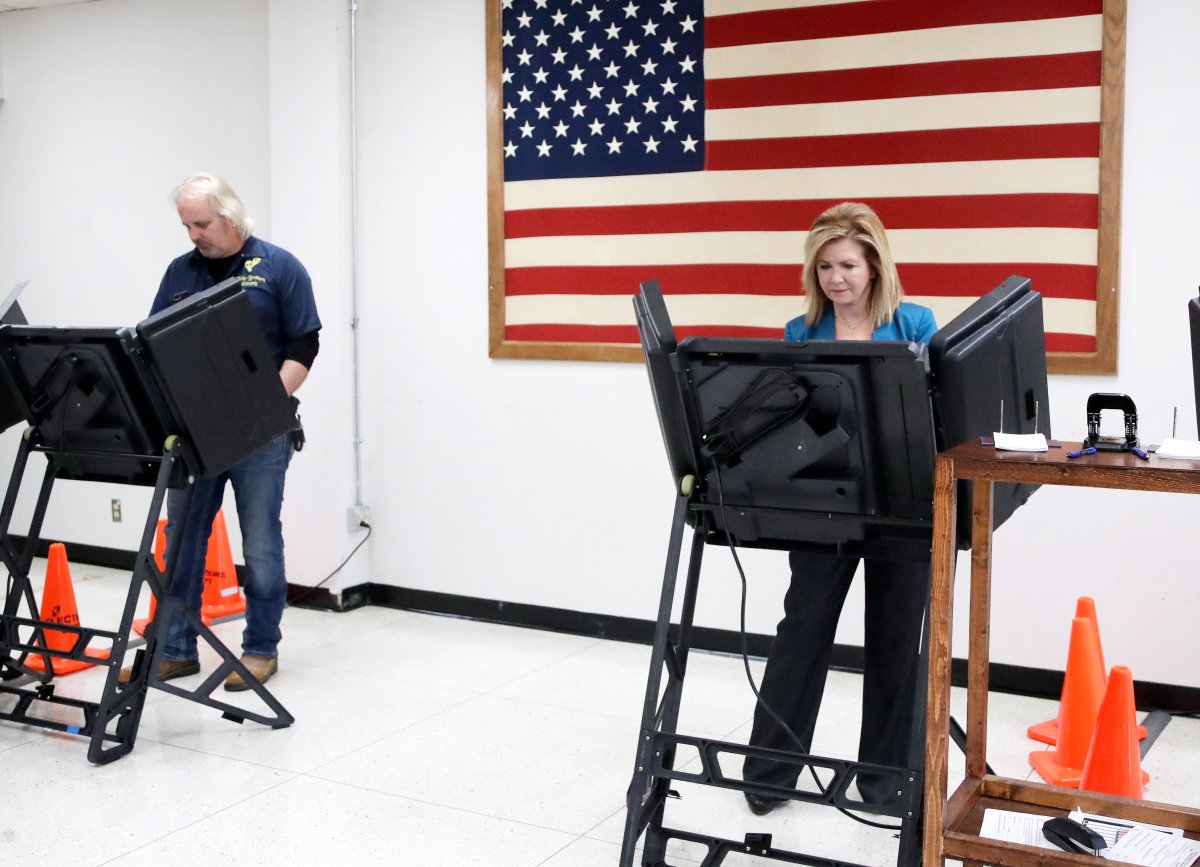As the 2018 U.S. midterm elections approach, American officials are staying vigilant to ensure there is minimal voting interference.

The first major election since 2016, in which Russian agents allegedly meddled, is scheduled for Tues. Nov. 6.
The average voter shouldn’t be too concerned about foreign interference, said Maurice Turner, a senior technologist at the nonprofit Center for Democracy and Technology in Washington, D.C.
But, he said that doesn’t mean Americans should be passive about secure elections.
READ MORE: On the eve of the midterms, America’s heartland is as divided as ever

“I’m hoping for a quiet Election Day,” Turner said. “I’m hoping that we can focus on the issues that are on the ballot versus how we’re going to count the ballot.”
Faulty machines and long lines are normal problems of local election management, said Marian Schneider, president of Verified Voting. But it’s still up to voters, she said, to insist on safe elections.
“It’s like preparing for a natural disaster,” she said. “While a hack on Election Day is a risk, not a certainty, we can never get that risk down to zero.”
There are multiple types of election interference that came into play in 2016 — and the U.S. is hard at work trying to ensure it doesn’t happen again.
WATCH: Millennials are largest cohort of U.S. voters for first time

Social media interference
One type of election interference is “information warfare,” in which social media is used to influence the way people vote. That includes false information spread by fake accounts to sway person opinions on the candidates.
One Russian national has already been charged with playing a key financial role in a Kremlin-backed plan for information warfare against the United States —including influencing next month’s congressional elections.
The complaint filed in October details new examples of Russians using fake personas on social media to stoke arguments about race and other contentious issues.
The information warfare strategy has also been picked up by other countries, including Iran.
On Oct. 26, Facebook removed over 80 pages which contained “inauthentic behavior that originated in Iran and targeted people in the U.S. and U.K.”
“About 1.02 million accounts followed at least one of these Pages, about 25,000 accounts joined at least one of these Groups, and more than 28,000 accounts followed at least one of these Instagram accounts,” Nathaniel Gleicher, Facebook’s head of cybersecurity policy, wrote on Facebook.
Hacking into the voting systems
While a May report from the Senate Intelligence Committee said the “U.S. election infrastructure is fundamentally resilient,” it also outlined Russian attempts in 2016 to scan election systems in 21 states and aggressively try to infiltrate six of them.
According to July indictments handed down by the special counsel Robert Mueller, the Russian agents stole the personal information of half-a-million voters.
If hackers were able to get into state voter registration databases, they could change party affiliations or addresses, or delete voters from the databases entirely.
In March, Congress allocated $380 million for state and local election security.
A new report from the Center for Public Integrity says U.S. officials are preparing a counterattack in case the Russians try this tactic again.
“U.S. military hackers have been given the go-ahead to gain access to Russian cyber systems that they feel is needed to let the plan unfold quickly,” the report says, citing anonymous military officials.
Hacking the parties
The Russians were also blamed for hacking the emails of the Democratic National Committee and Hillary Clinton’s campaign manager before passing them to Wikileaks.
The effect was widespread as media attention focused on the content of the emails for days.
While nothing similar has happened this year, Dmitri Alperovich, one of the founders of the cybersecurity firm CrowdStrike suggested that the Russians were too smart to “run the same play a second time.”
“If they were going to do anything in today’s environment, they certainly wouldn’t want to act until the very last moment,” he told The New York Times.
— With files from Reuters and The Associated Press





Comments